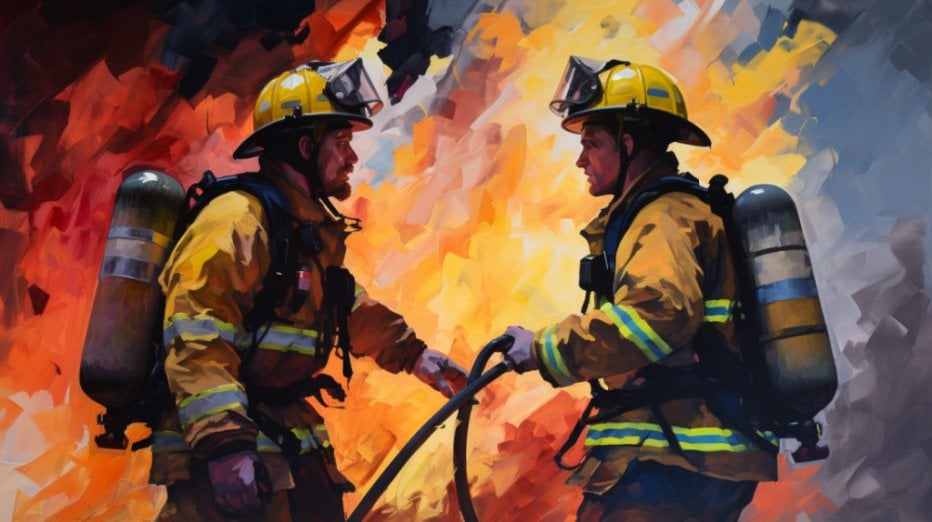Chasing Humility: Self-Esteem Vs. Self-Doubt

By: Elizabeth Anderson
“Oh Lord, it’s hard to be humble, When you’re perfect in every way. I can’t wait to look in the mirror, ‘Cause I get better lookin’ each day. To know me is to love me. I must be a hell of a man. Oh Lord, it’s hard to be humble, but I’m doing the best that I can.”
Mac Davis
So…how’s your self-esteem? Feeling pretty confident about yourself or is there a niggling hint of self-doubt that creeps in from time to time?
While it’s perfectly normal – and refreshingly human – to have moments when we feel less than completely confident, long stretches of self-doubt can signal self-esteem problems. And statistics show that low self-esteem is one of the most uncovered issues when we seek counseling.
Many of us find it hard to admit to our self-doubt, think it’s a shameful emotion, and instead, try to hide behind shows of false bravado. Sometimes, those shows can be pricey.
We buy bigger vehicles and spend more than we can afford to make our homes the envy of the neighborhood – and we take pride in our possessions. But there are different forms of pride: some good and some much less so. Pride can be a defense mechanism (a usually unconscious method to cope with stress or anxiety) when we’re wrestling with low self-esteem.
Many psychologists divide pride into two types: authentic (good) and hubristic (bad).
Hubristic pride – which some people think of as ego – is arrogant, boastful, and narcissistic, a false front designed to impress others and prop up our sagging self-esteem. Authentic pride, on the other hand, is the result of positive feelings arising from a legitimate accomplishment.
Hubristic pride rears its head when the mind tries to assuage negative feelings we may have about ourselves. Rather than relying on the self-validation that comes from a positive self-image, we turn to others and often go to great lengths to earn their admiration. We lie, spend money we can’t afford and make a world of bad decisions. It’s dysfunctional behavior that brings out the ugliest parts of us.
Biblical scholars will tell you that pride of the hubristic variety is one of the Seven Deadly Sins, and is often referred to as the one from which all others arise. Hubristic pride can lead us to project a fabricated positive persona while at the same time we criticize and nit-pick to everyone around us. Often we aren’t aware of what we’re doing, or why.
The problem is this: we aren’t only trying to impress others, we’re also trying to convince ourselves and we may respond aggressively to the slightest affront. We’re angry and resentful when other people don’t validate us the way we want them to. We lie and exaggerate our own accomplishments and can become consumed with being right and unable to see when we’re wrong. We feel like victims of the world, denied the wealth and prosperity we think we deserve, focusing on what we don’t have, rather than being grateful for what we do. We burn with envy at those who have more.
It’s a recipe for a dark and unhappy psyche and a behavioral pattern that makes it very difficult for others to like us.
There’s a fine line that divides the two types of pride. Firefighters, for example, have a lot to be genuinely proud of, and deserve praise and thanks for their selfless work and for risking their own lives to save others. It’s only reasonable to take authentic pride in your firefighting career, and to use this healthy pride as a motivator. It should create a healthy sense of self-esteem. But boasting about your work in an effort to impress others and feeling anger when they don’t respond with the admiration you expect amounts to hubristic pride, and may represent an effort to compensate for low self-esteem.
This constant worry about what others might think can be exhausting and some of us take the effort to extremes. We may become sexually promiscuous and manipulative, we may enter into relationships that are unhealthy and need constant validation from our partner. Relationships come and go quickly, but we can’t stand being alone, so we’re forever trying to find the next lover.
In extreme cases, we may begin to delight in other people’s misfortunes and might even try to sabotage friends, feeling that if someone else is knocked down a peg, all the times we’ve been frustrated won’t seem so terrible. When self-esteem is at a low ebb, things can feel pretty dark and dysfunctional. We’re constantly scheming, looking for other people’s weaknesses and failings, and fretting about what other people think of us. We’re struggling to maintain appearances, many of which are false or exaggerated.
The great irony is that it’s so much easier to let go of the pretenses and just be ourselves. Research has shown that when we’re comfortable in our own skin and have a healthy sense of self-esteem, people like and respect us more. People are not only unimpressed by aggressive braggarts, they’re actually repelled.
Authentic pride is associated with healthy self-esteem – something for which we should all strive. Here’s a surprising fact: the key to healthy self-esteem is actually humility.
Wait, what? Humility? There’s a mistaken belief, widely held in Western society, that humility is something to be avoided and is, in fact, a sign of weakness. Many people believe that humility involves self-degradation. Not so.
Humility doesn’t mean that we abuse ourselves or become anyone’s doormat. Billionaire Warren Buffett – the third richest man in the world – is well known for his humility. He definitely doesn’t belittle himself or diminish his accomplishments. He’s not meek, and he sure doesn’t have a low opinion of himself. He understands and is justifiably proud of his achievements and so naturally commands admiration and respect. Despite that, he lives a down-to-earth lifestyle, refusing the luxuries he can so easily afford.
Humility is a highly desirable character trait, associated with pro-social behavior, academic excellence, and better job performance. Humility has been shown to be a powerful tool in helping us to handle life’s inevitable hardships by providing psychological resilience.
It is, quite simply, unvarnished, positive self-esteem that doesn’t depend upon validation from others. Humility is a realistic appreciation of one’s limitations as well as one’s strengths. It fosters a healthy self-esteem built on an unshakeable understanding of our own self-worth, devoid of the need to maintain a false front to show the outside world. Humility is not about needing to prop up our feelings of self-worth by impressing others through our material worth or demonstrations of grandeur.
As the monk, scholar and social activist Thomas Merton said: “It’s humility that makes us real.”
Podcast
Contests & Promotions
















